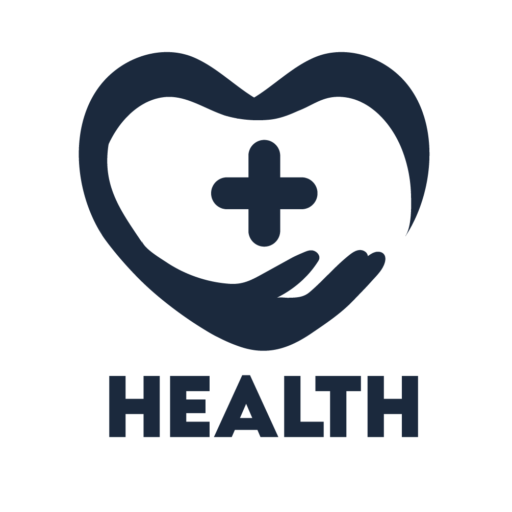Pregnancy and the postpartum period are unique times in a woman’s life, filled with excitement, change, and, at times, unexpected challenges. Taking care of both physical and mental health during these stages is crucial, as it supports the well-being of both mother and baby. With the right nutrition, exercise, mental health practices, and self-care routines, women can navigate these stages more comfortably and with confidence.
Pregnancy and Postpartum Health Tips In this blog, we’ll dive into practical health tips for both pregnancy and postpartum, helping you prepare for this journey with knowledge and tools to promote a healthy experience for yourself and your growing family.
Part 1: Health Tips During Pregnancy
Pregnancy is a period of profound physical and emotional change, making it essential to adopt supportive health practices. Here are some key ways to care for your body and mind during pregnancy.
A. Prioritize Balanced Nutrition
Eating a balanced diet is essential for fetal development and for supporting your own energy levels and health during pregnancy. Focus on these key nutrients:
- Folate and Folic Acid: Folate helps prevent neural tube defects in the developing baby’s brain and spine. Leafy greens, citrus fruits, and fortified grains are good sources.
- Iron: Iron supports increased blood volume and helps prevent anemia. Include iron-rich foods such as lean meats, beans, and spinach.
- Calcium and Vitamin D: These nutrients promote bone health for both mother and baby. Dairy products, fortified plant milks, and leafy greens are excellent sources.
- Protein: Protein is crucial for fetal tissue development and maternal health. Aim for sources like eggs, beans, lean meats, and dairy.
- Hydration: Staying well-hydrated supports your growing blood supply and helps reduce symptoms like constipation. Aim to drink water throughout the day and carry a reusable bottle for convenience.
A prenatal vitamin can also ensure that you’re getting essential nutrients. Speak with your healthcare provider to choose the right one.
B. Safe Exercise for a Healthy Pregnancy
Regular, moderate exercise benefits both physical and mental health, improving sleep quality, boosting mood, and reducing pregnancy-related aches. Here are some safe options:
- Prenatal Yoga: Yoga can improve flexibility, relieve stress, and help with breathing techniques for labor. Look for prenatal-specific classes that tailor poses for each stage of pregnancy.
- Walking: Walking is a gentle, low-impact exercise that can be easily incorporated into daily life. Aim for 20-30 minutes a day if possible.
- Swimming: Swimming supports joints and reduces the strain of added weight, making it ideal for pregnancy. It also helps relieve back pain and reduces swelling.
Consult your doctor before starting any new exercise program, especially if you weren’t active before pregnancy.
C. Prioritize Rest and Manage Stress
Pregnancy can bring physical discomforts and emotional stress, making rest and stress management crucial for well-being.
- Get Plenty of Sleep: Hormonal changes can cause fatigue, and getting enough rest is essential. Try sleeping on your left side to improve blood flow and use a pregnancy pillow for comfort.
- Practice Mindfulness or Meditation: Techniques like deep breathing, meditation, or even a few minutes of quiet reflection can help reduce anxiety and promote relaxation.
- Listen to Your Body: As pregnancy progresses, it’s natural to feel more tired. Don’t hesitate to take naps or rest when you need to. Growing a baby is hard work!

Part 2: Postpartum Health Tips
The postpartum period is a time of recovery and adjustment. After childbirth, mothers need time to heal physically and adapt to new routines. Here are some ways to support recovery and well-being during this phase.
A. Physical Recovery and Self-Care
Physical recovery postpartum varies for every woman, and healing from childbirth takes time and care.
- Stay Hydrated and Nourished: Eating nutrient-dense foods will support recovery and help maintain energy. Continue to prioritize calcium, iron, and protein to promote tissue repair and replenish lost nutrients.
- Pelvic Floor Exercises: Gentle pelvic floor exercises (Kegels) can help restore muscle tone after delivery. These exercises improve bladder control and strengthen the pelvic region.
- Rest When Possible: Sleep can be challenging with a newborn, so try to rest whenever possible. If loved ones offer help, consider accepting it to allow for breaks and naps.
Whether you had a vaginal or C-section delivery, follow your doctor’s advice regarding physical activities and avoid heavy lifting until your body has sufficiently healed.
B. Mental Health and Emotional Wellness
The postpartum period can bring emotional ups and downs, often due to hormonal changes, sleep deprivation, and the adjustments of caring for a newborn. Supporting mental health is vital for both mothers and babies.
- Watch for Signs of Postpartum Depression: Feelings of sadness, anxiety, or overwhelming thoughts can be common. However, if these feelings persist, it could indicate postpartum depression. Don’t hesitate to reach out to a healthcare provider if you feel this way.
- Seek Support: Parenting can be both joyful and exhausting. Having a support network—whether through family, friends, or support groups—can make a big difference.
- Prioritize Self-Compassion: The postpartum period is full of changes, and it’s natural to feel a range of emotions. Being gentle with yourself and recognizing that it’s okay to ask for help can reduce stress and promote healing.
C. Physical Activity and Regaining Strength
After the postpartum healing period, gradually reintroducing physical activity can help boost mood, increase energy, and support physical recovery.
- Start with Light Movement: Gentle activities like walking are beneficial during the early postpartum period. Once cleared by your doctor, you can slowly reintroduce low-impact exercises.
- Focus on Core and Pelvic Floor Strength: Rebuilding core strength is essential for posture and stability. Pelvic floor exercises are equally important for regaining muscle tone and control.
- Listen to Your Body: Each postpartum journey is unique, and it’s important not to rush the recovery process. Begin slowly, and only increase intensity if it feels comfortable.
Remember that full recovery takes time. Consulting with a physical therapist specializing in postpartum care can help design an appropriate exercise plan.
Additional Tips: Nursing and Breastfeeding Support
For mothers who choose to breastfeed, certain practices can support both mother and baby:
- Stay Hydrated: Breastfeeding increases water needs, so keep a water bottle close by and drink regularly.
- Consider Lactation-Boosting Foods: Foods like oats, flaxseed, and leafy greens may help with milk production. However, a balanced diet and adequate calories are the best support for lactation.
- Find Comfortable Nursing Positions: Experiment with various positions to reduce strain on your back and neck and promote comfort during feeding times.
Breastfeeding can be a challenging journey; lactation consultants and support groups can provide valuable guidance.

Conclusion
Pregnancy and postpartum are transformative experiences, and taking care of your health during these stages sets the foundation for long-term well-being for you and your baby. By focusing on balanced nutrition, safe physical activity, mental health, and postpartum recovery, you can navigate these stages with confidence and resilience.
Remember, every pregnancy and postpartum journey is unique, and listening to your body’s needs is essential. Seeking support, practicing self-care, and prioritizing mental health can make this journey smoother and more fulfilling. Embrace this incredible phase with patience, kindness, and the knowledge that small, consistent steps can help you and your family thrive.

